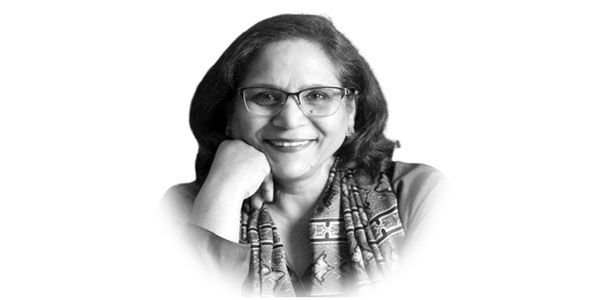Combating Islamophobia: Will a UNGA Resolution suffice
MUSLIMS, as members of minority communities in the West, grow up against a background of everyday Islamophobia.
In the last two decades, Islamophobia in the West has become mainstream. Although it may not be wrong to say that covertly, Islamophobia is the last link in the chain of a long tradition of Eurocentrism, ethnocentrism, xenophobia and racism.
The recent rise of Islamophobic policies and practices, in particular the false fear of Islam, which carried Trump in the U.S.
A and many far-right political parties in Europe into power, seems to have turned into a ‘reason’ for all kinds of violence and oppression against Muslims.
The term Islamophobia reemerged in public discourses and part of state policies in the post-Cold War period and builds upon latent Islamophobia that is sustained in the long history of Orientalist and stereotypical representation of Arabs, Muslims and Islam itself.
Many scholars believe that Islamophobiaas an ideological construct emerged in the post-Cold War era with the intent to rally the Western world and the American society at a moment of perceived fragmentation after the collapse of the Soviet Union in a vastly and rapidly changing world system.
There has also been intense debate around the concept that Islamophobia is the ingredient, as postulated in Huntington’s “Clash of Civilizations” thesis that is needed to affirm the Western self-identify after the end of the Cold War and the lack of a singular threat or purpose through which to define, unify, and claim the future for the West.
Although the 1979 Iranian Revolution intensified the negative representation of Islam and Muslims in the West, scope of the demonization was not on the same scale that emerged in the post-Cold War era.
From this perspective Islamophobia could be defined as the post-Cold War ideology to bring about a renewed purpose and crafting of the Western and American security paradigm portraying the Muslim as the singular global strategic threat.
In recent years, Islamophobia has been fuelled by public anxiety over immigration of Muslim minorities into majority Christian cultures particularly in Europe.
The influx of large number of refugees from war-torn Muslim countries like Libya, Iraq, Afghanistan, Syria and Yemen further aggravated the situation.
Islam and millions of Muslims living in the Weston are depicted as inherent threats to the Western way of life, even in countries where they have lived for generations.
The myth of an ongoing Western “Islamization” or invasion has been nurtured by xenophobic, populist parties that are on the rise across the West world. 9/11 terrorist attacks radically changed public opinion towards Muslims.
Terrorist acts by violent jihadists in London, Paris, Brussels and Barcelona increased fear and anxiety in the West perceiving Islam as a threat and fundamentalism as the problematic heart of Islam and fearing Muslims as the enemy.
Since 2001, Western media have succumbed to reporting based on stereotypes and used the actions of terrorists to stigmatize Muslims.
These stereotypes and generalizations are feeding into counter-terrorism measures in Europe that restrict liberties for all and negatively impact Muslim communities.
In a climate of rapidly expanding diversity in the West, Muslim minorities are portrayed as non-belonging and wanting to separate themselves from the rest of society.
Government policies have failed to ensure equal rights for all, forcing significant sections of Muslim minorities to face unemployment, poverty and limited civic and political participation, all of which aggravate discrimination.
Minorities also serve as scapegoats in times of economic and political crisis as we saw how these tensions exacerbated in the aftermath of the economic crash of 2007 and the rise of populist nationalist politic.
Policies or legislation that indirectly target or disproportionately affect Muslims, and unduly restrict their freedom of religion, such as bans on wearing visible religious and cultural symbols, laws against facial concealment and bans on building mosques with minarets discrimination in education, employment, housing, or access to goods and services ethnic and religious profiling and police abuse, including some provisions of counterterrorism policing public pronouncements by some journalists and politicians—across the whole political spectrum—that stigmatize Muslims as a group and disregard their positive contribution to the communities and countries in which they live.
Adoption of a resolution sponsored by 57 OIC countries plus eight more including china and Russia by the UN General Assembly proclaiming 15 March as the International Day to Combat Islamophobia is a welcome development.
The text called for expanded international efforts to create a global dialogue that will encourage tolerance and peace centred on respect for human rights and the diversity of religions and beliefs.
Marking 15 March as the International Day to Combat Islamophobia will raise international awareness about the growing phenomenon of Islamophobia and anti-Muslim hatred; send a clear message that the world opposes all forms of racism, racial discrimination, xenophobia, negative stereotyping and stigmatization; promote the message of tolerance, peaceful co-existence and interfaith and cultural harmony among all religions, races and nations; demonstrate by commemorating on this day unfettered solidarity with all humanity, convey a strong message of respect for human dignity, and reiterate common commitment to unity in diversity.
This is an important beginning but I believe a lot more needs to be done particularly by the Muslim countries and Muslim communities themselves in order to change the narrative about Islam and Muslims.
There is a dire need for the OIC to seriously undertake an objective analysis of the shortfalls in the Ummah and our orientation to the world.
Lack of education, lack of understanding of the concept of moderation in Islam, lack of Ijtihad and scholarly discourse on issues plaguing the Ummah and hampering development need urgent attention.
Combating Islamophobia will not be possible by just focusing on what the Western world needs to do to integrate the Muslim communities and ensure equal status and human rights to them.
A deep introspection is required by the Muslims themselves to identify deficiencies and rectify them.
—The writer is former Ambassador, based in Islamabad.










